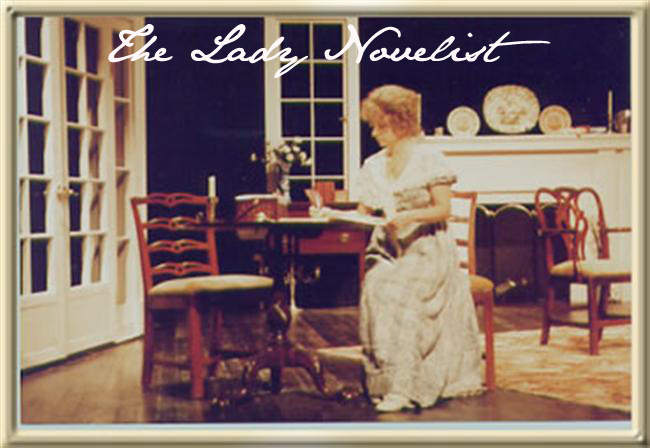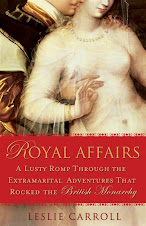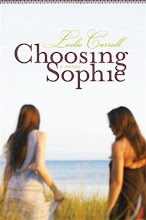
It is a truth universally acknowledged that we can never get enough of Jane Austen.
Jane Austen turns 234 today. I wonder if she ever imagined how famous she would become posthumously. It sounds oxymoronic, but if she'd lived to enjoy her celebrity I think she would be absolutely tickled. Yes, she was a quiet country girl at heart, but she was also someone who tut-tutted when people read her books via a library subscription rather than buying a copy.
A romantic pragmatist (or pragmatic romantic) in every way, she certainly sought an income for her efforts. And the dynamics of the literary world have changed little since 1811 when her first novel Sense and Sensibility was published. Authors love to write, but we also want to be well compensated for our work; publishers want to keep their purse strings as tight as possible; and readers may be eager to read our next book, but they don't necessarily want to have to pay for the privilege.
Jane came of age in the Georgian era, a somewhat licentious age where women were as sexually charged as men, but it was also in many ways a misogynistic age where the laws were concerned. A wife was her husband's property. He was liable for her actions--and could be sued for libel if she was perceived as having offended someone through her written or spoken words.
Consequently, it was the rare man who would "permit" his wife to abase herself by becoming a "scribbler," because he didn't want the potentially costly legal responsibility for her literary efforts. Although Jane came from modest means (and her stories reflect the continual search by women of her class to marry for love and money to a man who would understand them and be their equal in every way) she was well aware that there was a vast difference between the world she envisioned in her fiction and the harsh fiscal realities facing genteel young women of the minor gentry in the late eighteenth and early nineteenth century.
As much as Jane recognized that marriage to a good provider would end her need to constantly scrimp and worry about how she might make it through the next year, she refused to commit herself to a loveless match or a man who might deny her the ability to write and to send her work out into the world. Even if she hadn't written a half-dozen stellar novels, and left some delightful unfinished fragments and myriad works of juvenilia, she would be laudable for practicing in her life what she preached in her writing.
However, despite the lack of a husband who might have "forbidden" her to "scribble," for propriety's sake Jane's name was not even printed on the frontispieces or spines of her novels during her lifetime. The books were written "By A Lady," and later, after the success of Sense and Sensibility and Pride and Prejudice, by "the author of" those bestsellers.
For the past several years I have felt a deeply personal connection to Jane Austen. Some time ago I had the pleasure and privilege to play the role of Jane in a two-character romantic drama titled The Novelist by Howard Fast--a most prolific novelist himself, with more than sixty titles to his credit, as well as plays and screenplays. The Novelist begins during the last year of Jane's life as she sits down to write the book that will become Persuasion. Enter a charming sea captain stage left, who intends to sweep Jane off her feet and propose marriage--and he won't take "no" for an answer.
Fast's drama is touching, humorous, and ultimately elegiac. And the audience never knows whether the sea captain is intended to be real, or whether Jane is imagining him, the better to craft her character of Captain Wentworth. Mr. Fast saw me perform the role of Jane but I never had the opportunity before he died to ask him about this.
My experience in The Novelist prompted me to become one myself. And every night when I stepped out on the stage into the room that was supposed to represent Jane's little parlor at Chawton I had the sense of stepping back in time. What if, I wondered, I were to be transported to England through some strange sort of time warp?

Thus was born my time travel novel, BY A LADY: Being the Adventures of an Enlightened American in Jane Austen's England, a romantic romp about a 21st century actress who is thrust back in time to Bath, England in 1801, the year Jane Austen and her family retrenched there. My heroine, C.J. Welles, meets and is befriended by her idol as well as by Jane's fictional cousin, Lord Darlington, the man who becomes C.J.'s love interest, unaware that a gulf of two centuries separates them.
Imagine how stunned I was when I later came across a late eighteen-century map of Bath and saw that the street that mirrors Sydney Place, where the Austens lived soon after their arrival, was called Darlington Place! I got chills!
In fact, this blog is titled "The Lady Novelist" all because of those experiences. And the photograph in the banner is of me playing Jane in the show. Of all the plays I've acted in so far, that production remains my favorite. The director Laurie Beth Petersen and the production designer (who also took the photo of me) Raffaele Castaldo, made it all the more special because they were so passionate about the material. Even the theatre was like a gorgeous little jewel box.
So I owe much to Jane Austen, as a literary inspiration and as a personal one. Her humor, wit, and integrity are as much to be admired as her novels, and I do believe that's another reason why she remains so beloved today.
After all, why else would people buy tee shirts and coffee mugs with the query "What Would Jane Say?"
How has Jane Austen impacted your life?
+for+blog+header+copy.jpg)

.jpg)
.jpg)





6 comments:
Confession time: I just read PRIDE & PREJUDICE for the first time last year. (Please, no outraged howls.) And I read it because I had fallen in love with Colin Firth in the A&E production of P&P...which I just watched last year.
I guess I'm woefully under-read in some of the classics!
Which made your blog all the more fascinating, since I learned quite a bit about Miss Jane and her times. And now I understand the reasoning behind the titling of BY A LADY.
So, to answer your question, Austen's impact on me is the realization that women have always desired to write, and have been good at it, but it was Jane who made it acceptable.
Hey, Christine, it's never too late to discover Jane. So I shall not emit any undecorous howls. And Colin Firth (in P%P or in anything else) is reason enough to do anything, though I will fight to the death for the Laurence Olivier/Greer Garson version from the early 1940s, which also had the most perfect supporting cast ever assembled for the roles. Mary Boland and Edmund Gwenn as the Bennet parents; Melville Cooper as Mr. Collins; and the incomparable Edna May Oliver as Lady Catherine de Burgh.
Wonderful post, Amanda! Totally agree about the 1940 P&P (though I also am very fond of the 1995 and 2005 versions and actually just watched all three). To me Darcy will always be Laurence Olivier.
My parents took me to the movie when I was six (not in its original release :-). I promptly told my mom I wanted her to read the book to me. She said "we can try, but I'm not sure you'll like it." I was entranced. I got it on a much simpler level than I do today, but I loved it. It was a story of girls, older than me, but not so old I couldn't relate, dealing with sister and parents, growing up, falling in love, getting married. That began my fascination with the Regency/Napoleonic era. So without Jane Austen, I doubt I would be an historical novelist writing in that era today.
Tracy, that's wonderful! Don't worry, I didn't assume you were at the original release of Pride & Prejudice, LOL! That film version can certainly make a girl of any age fall in love with Olivier ... I mean Pride & Prejudice!
Like you and Christine, I saw a film version before I read the novel (or any of Jane's novels). For some reason we didn't read them in school. I've always wondered why, since I went to a very liberal, progressive school, where many of the English teachers were female, that we didn't read female novelists.
I guess that's a subject for another post entirely!
We read Pride & Prejudice in British Lit junior year in high school and Persuasion n Western Culture in college. We didn't read any female authors in American Lit sophomore year in high school, though, and the closest thing we got to a book with a female protagonist was The Scarlet Letter. I brought this up in course evaluations :-).
Tracy, I took a fabulous elective in high school that concentrated for a full semester on Faulkner, Fitzgerald, and Hemingway (which made me a lifelong fan of the latter 2 authors), but we never had anything like an Austen, Bronte, Bronte, [and Bronte] elective. And I fondly remember not remotely relating to "The Red Badge of Courage" in 3rd form, wondering why we kept reading "boy books."
Then again, in AP English in 6th form, at least we got to read Henry James's (does being a closeted gay author count?) "Portrait of a Lady" which at least had a female protagonist -- and I remember the guys in the class not relating to, or understanding, Isabel Archer at all, while all the girls in the class had figured out exactly what motivated her -- even her bad decisions.
Post a Comment